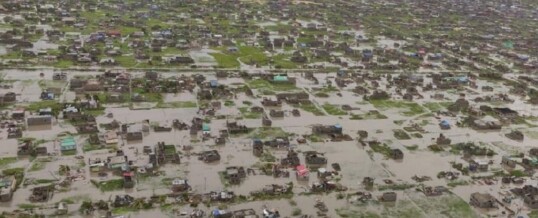
McLeod Group blog, April 8, 2019
The Canadian government recently announced that it would match every dollar Canadians contribute to the response to Cyclone Idai in Southern Africa. While the matching funds mechanism sounds like a generous move and one that would encourage individuals to donate more, it actually contradicts universally agreed humanitarian principles. In particular, it lets the allocation of Canada’s humanitarian assistance be skewed by media coverage and popular sentiments. Matching funds are in fact a terrible way to allocate budgets.
On March 14-15, the cyclone struck the coast of northern Mozambique, centred on the city of Beira, before moving inland to hit Zimbabwe and Malawi with storm winds and heavy rainfall causing devastating floods. About 3 million people have been affected and urgently require shelter, clean water, food and medical assistance to help deal with cholera and diarrhea. In the coming months, many of these people will need sustained assistance to rebuild their lives and livelihoods. The United Nations, through the Office for the Coordination of Humanitarian Affairs, has issued an appeal for US$282 million to support relief efforts.
On March 23, Canada announced a contribution of $3.5 million to the humanitarian response effort. A week later, the government committed another $4.5 million. In addition, on April 1, the government announced the creation of a special funding mechanism whereby every donation made by Canadians between March 15 and April 14 to the Humanitarian Coalition, a group of seven Canadian NGOs that work together to respond to emergencies resulting from natural disasters, and its member organizations will be matched by the Government of Canada to a maximum of $2 million.
In the past, including in response to the 2004 Southeast Asian tsunami, the 2010 Haiti earthquake, and the 2015 Horn of Africa drought, the extra money was just added to the government’s response budget. This time, the corresponding funds will be given directly to the Humanitarian Coalition.
Timeliness is essential for effective humanitarian assistance. However, the Humanitarian Coalition won’t know until after April 15 at the earliest, one month after the cyclone struck, how much extra funding it will receive. That won’t help the member agencies plan and deliver in a timely manner their additional assistance to the people in Mozambique, Malawi and Zimbabwe. The Humanitarian Coalition is a reputable organization with a solid track record. Since the government has already earmarked the money, it should just skip the matching fund process, avoid the delay, and give the Coalition the $2 million right now.
Moreover, as Canada subscribes to the international consensus that humanitarian assistance should be driven by need, why is the Canadian government privileging Cyclone Idai over other major crises, such as those in Yemen or Chad? Will it take a surge in media attention to generate public concern and the creation of matching funds for those emergency situations? Is there any evidence that matching funds actually increase the level of private donations from Canadians?
Canada has been a leader in developing principles of good humanitarian practice designed to ensure timely, needs-based, effective emergency assistance. Indeed, Canada signed on to the consensus reached at the World Humanitarian Summit in 2016. Matching funds are not an honest way to raise the profile of humanitarian emergencies and the needs of affected people. The delays inherent to matching funds decrease the effectiveness of Canadian humanitarian assistance. It is time to walk the talk and stop using the matching fund mechanism.
Photo: Destruction caused by Cyclone Idai in Beira, Mozambique. Credit: Africanews.
